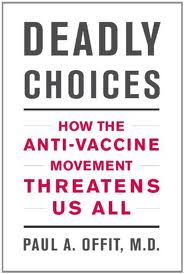February 1st, 2011 by DrWes in Better Health Network, Opinion
No Comments »

 It came as a Twitter “follow” from @coldfeet65, a self-proclaimed “Nurse Practitioner Hospitalist.” I had never heard this term before. Does it mean a nurse practitioner who cares for hospitalists? Or is it a hospitalist who is a nurse practitioner? Or maybe it’s a nurse practitioner who helps hospitalists? (Honestly, I think I know which one she means, but you get my point.)
It came as a Twitter “follow” from @coldfeet65, a self-proclaimed “Nurse Practitioner Hospitalist.” I had never heard this term before. Does it mean a nurse practitioner who cares for hospitalists? Or is it a hospitalist who is a nurse practitioner? Or maybe it’s a nurse practitioner who helps hospitalists? (Honestly, I think I know which one she means, but you get my point.)
Perhaps this is a prescient glimpse to healthcare of the future, where our more typical nurse and doctor labels are supplanted by more and more monikers that serve to confuse, rather than clarify, each of our roles in healthcare delivery. As specialists in cardiology, we’ve seen a similar trend with cardiology hospitalists. But we should be clear what this means to the patients and doctors going forward.
No doubt most people in America still expect to see a doctor when they come to the hospital. Increasingly, it appears that might not be the case. Your doctor might be a robot while a nurse (aka, nurse practitioner) will be the one providing the hands-on care in the inpatient setting. Is that a good thing? Honestly, I’m not sure.
No one argues that the costs in healthcare need to be cut. No doubt the central authority has deemed that doctor salaries will be a big part of that effort. Already, 20 states have cut physician Medicaid payments for fiscal year 2010 and, given the current economic pressure on our states both now and after they start feeling the financial impact of the “Affordable” Care Act in 2019, this trend is not likely to improve anytime soon. As a result, we are seeing that the world is full of “creative solutions” to our healthcare access crisis and the evolution to “nurse practitioner hospitalists” might be one of these. Read more »
*This blog post was originally published at Dr. Wes*
January 31st, 2011 by Bryan Vartabedian, M.D. in Book Reviews, Opinion
No Comments »

 A friend suggested she was tired of hearing about vaccines. Her comment and our subsequent conversation seemed to reflect an important shift in parent sentiment: The conversation about vaccines is beginning to get somewhere.
A friend suggested she was tired of hearing about vaccines. Her comment and our subsequent conversation seemed to reflect an important shift in parent sentiment: The conversation about vaccines is beginning to get somewhere.
While much of this was born of the mainstream media’s newfound realization that the vaccine-autism connection was cooked, some of this is due to the tireless work of those like the Children’s Hospital of Philedelphia’s Dr. Paul Offit who get the story right.
As part of his passionate agenda to expose vaccine truths, he’s published “Deadly Choices: How the Anti-vaccine Movement Threatens Us All” (Basic Books, 2011). For those looking to understand the origins of anti-vaccine sentiment, read this book.
What struck me is the deep history behind the anti-vaccine movement. From Jenner’s smallpox fix to modern-day MMR struggles, Offit draws fascinating corollaries surrounding immunization that seem to defy the generations. Vaccine resistance was not born of Andrew Wakefield, but broader concerns rooted in religion, individual liberty, fear and propaganda. “Deadly Choices” puts the anti-vaccine movement in a historic sequence that reads like good suspense. I couldn’t put it down. Read more »
*This blog post was originally published at 33 Charts*
January 29th, 2011 by KevinMD in Health Policy, Opinion
No Comments »

I recently pointed to a BMJ study concluding that pay for performance doesn’t seem to motivate doctors. It has been picking up steam in major media with TIME, for instance, saying: “Money isn’t everything, even to doctors.”
So much is riding on the concept of pay for performance, that it’s hard to fathom what other options there are should it fail. And there’s mounting evidence that it will.
Dr. Aaron Carroll, a pediatrician at the University of Indiana, and regular contributor to KevinMD.com, ponders the options. First he comments on why the performance incentives in the NHS failed:
Perhaps the doctors were already improving without the program. If that’s the case, though, then you don’t need economic incentives. It’s possible the incentives were too low. But I don’t think many will propose more than a 25 percent bonus. It’s also possible that the benchmarks which define success were too low and therefore didn’t improve outcomes. There’s no scientific reason to think that the recommendations weren’t appropriate, however. More likely, it’s what I’ve said before. Changing physician behavior is hard.
So if money can’t motivate doctors, what’s next? Physicians aren’t going to like what Dr. Carroll has to say. Read more »
*This blog post was originally published at KevinMD.com*
January 28th, 2011 by DrCharles in Health Tips, Research
1 Comment »

 “This job is killing me” is not a statement of jest. It is a desperate plea of outright sincerity.
“This job is killing me” is not a statement of jest. It is a desperate plea of outright sincerity.
Stress, anxiety, depression — all have been associated with an increased risk of cardiovascular disease and mortality. But can interventions to help people cope with stress positively affect longevity and decrease risk of dying? The results of a new study in the Archives of Internal Medicine would imply the answer is an encouraging “yes.”
Constructively dealing with stress is easier said than done, but it would seem logical that if we can reduce our psychological and social stressors we might live longer and delay the inevitable wear and tear on our vessels. This study proved that one such intervention, cognitive behavioral therapy (CBT) for patients who suffered a first heart attack, lowered the risk of fatal and nonfatal recurrent cardiovascular disease events by 41 percent over eight years. Nonfatal heart attacks were almost cut in half. Excitement may be dampened by the fact that all-cause mortality did not statistically differ between the intervention and control groups, but did trend towards an improvement in the eight years of follow up.
Definitely less suffering. Maybe less deaths.
The authors state that psychosocial stressors have been shown to account for an astounding 30 percent of the attributable risk of having a heart attack. Chronic stressors include low socioeconomic status, low social support, marital problems, and work distress. Emotional factors also correlated with cardiovascular disease include major depression, hostility, anger, and anxiety. Read more »
*This blog post was originally published at The Examining Room of Dr. Charles*
January 25th, 2011 by KevinMD in Better Health Network, Opinion
No Comments »

Did you know that one-third of the country’s physicians are over the age of 65? That’s right, there’s a good chance that your doctor is on Medicare. That’s a concern, because physicians aren’t immune to the ails of aging, and are just as prone as patients to succumb to the effects of Parkinson’s or various types of dementias.
Not comforting if you’re about to undergo an operation, for instance. And absolutely frightening when you consider baby boomers and newly-insured patients will flood our health system in the coming years.
An eye-opening piece from the New York Times highlights the trend. It’s up to doctors and medical societies to report doctors who aren’t able to proficiently perform, but few do. According to the data, the rate of disciplinary action for physicians out of school 40 years was 6.6 percent.
Various tactics to ensure competency have been slow to take off. Requiring all doctors to re-certify, for instance, isn’t working, since the vast majority of doctors practicing are “grandfathered” into not being required to take the test. Read more »
*This blog post was originally published at KevinMD.com*
It came as a Twitter “follow” from @coldfeet65, a self-proclaimed “Nurse Practitioner Hospitalist.” I had never heard this term before. Does it mean a nurse practitioner who cares for hospitalists? Or is it a hospitalist who is a nurse practitioner? Or maybe it’s a nurse practitioner who helps hospitalists? (Honestly, I think I know which one she means, but you get my point.)
















